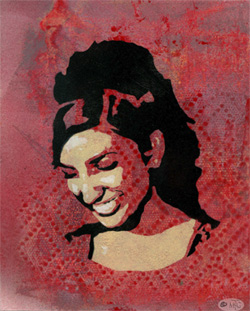Valarie Kaur is an award-winning filmmaker, civil rights lawyer, activist, author, entrepreneur, Sikh thought leader and movement-builder who uses stories to drive social change. Inspired by the Sikh faith, her new venture, the Revolutionary Love™ Project, harnesses the ethic of love to drive courageous action in American public life. Latest at @valariekaur.
For 15 years, Valarie Kaur has made award-winning films and led national campaigns to protect civil rights and human dignity — including on racism and profiling, gun violence, immigration detention, solitary confinement, net neutrality, LGBTQI equality, and hate crimes against Muslims and Sikhs. She is the founder of Groundswell Movement, America’s largest multifaith online organizing community of 200,000+ known for “dynamically strengthening faith-based organizing in the 21st century.” She also founded the Yale Visual Law Project where she trained students at Yale Law School to make films that change policy. Kaur recently served as the Media and Justice Fellow at Stanford Law School’s Center for Internet and Society, where she co-founded Faithful Internet to equip faith leaders in the fight for Internet freedom. Now as the Scholar-in-Residence at Middle Collegiate Church and Senior Fellow at Auburn Theological Seminary, she preaches on #revolutionarylove as a political and moral response to violence and wellspring for social action. She believes “the way we make change is just as important as the change we make.”
Television, Print, and On Stage. A prolific public speaker, Kaur has addressed audiences at the White House, Pentagon, the United Nations, the Parliament of the World’s Religions, and on more than 250 U.S. college campuses. She has also traveled with the U.S. State Department as a keynote speaker throughout Burma, aiding its transition from dictatorship into democracy. She has been a regular television commentator on MSNBC and opinion contributor to CNN, NPR, PBS, The Washington Post, The Huffington Post, The Hill and The New York Times.
Films & Activism. Kaur’s first film Divided We Fall (2008) with director Sharat Raju toured in 200 U.S. cities, won a dozen international awards, and became known as the definitive documentary on post-9/11 hate crimes. The film inspired the Divided We Fall Campaign and created race dialogues on 80 university and college campuses in 2008. Since then, Kaur and Raju have continued to make documentary films together aimed at social change: Alienation (2011), a short film, follows families swept up in immigration raids; Stigma (2011), a short film, chronicles youth encounters with stop-and-frisks; The Worst of the Worst: Portrait of a Supermax (2012), a documentary on the practice of solitary confinement, helped win policy change in Connecticut and is now used by activists around the country; and Oak Creek: In Memorium (2012), a viral short film on the 2012 mass shooting at the Sikh Temple of Wisconsin, helped the Sikh community win historic federal policy change on hate crimes. In 2016, Kaur and Raju created Seva Productions to support entertainment and social justice projects.
Honors. The Center for American Progress names Kaur “a standout figure in the world of interfaith organizing and activism” and among 13 progressive faith leaders to watch. Melissa Harris-Perry calls Kaur “one of the most compelling young voices in America today.” The State of California has recognized her work, and Asian Americans Advancing Justice awarded her the American Courage Award. In 2013, Kaur was named “Person of the Year” by India Abroad and one of eight Asian American “Women of Influence” by Audrey Magazine. In 2015, Kaur was named among the “Women Who Won Net Neutrality” in Slate and was honored by the World Economic Forum as a Young Global Leader. In 2016, she became the youngest person to receive an alumni award from Harvard Divinity School.

Background. Kaur was born and raised in Clovis, California, a small town near Fresno where her family settled as Indian Punjabi farmers a century ago. She was raised as a Sikh whose faith inspires a commitment to social justice. She became an activist when family friend Balbir Singh Sodhi was murdered in a hate crime in the immediate aftermath of 9/11. At twenty years old, she set out across America to chronicle hate crimes against Sikh and Muslim Americans. The journey led to the award-winning film Divided We Fall (2008) and initiated her work as an artist, scholar and activist.
Education. Kaur earned undergraduate degrees in religion and international relations at Stanford University, a master’s degree in theological studies at Harvard Divinity School where she was a Harvard Presidential Scholar, and a JD at Yale Law School, where she was a Knight Law and Media Fellow and Visiting Fellow at the Information Society Project. In law school, Kaur filed a landmark immigrant rights lawsuit with her clinic team in law school and co-led a high-profile campaign against racial profiling with a coalition that resulted in a monumental consent decree of the East Haven Police Department. She also reported on the military commissions at Guantanamo and clerked on the Senate Judiciary Committee.
Personal Life. Kaur lives with her husband and filmmaking partner Sharat Raju in Los Angeles, where they raise their son Kavi in an inter-generational home. They enjoy hosting friends and family by the sea and sharing their passion for stories, chocolate and classical Indian dance kathak. Kaur believes that joy sustains social justice work: “The way we make change is just as important as the change we make.”






